Gluecon
I had the good fortune of attending Gluecon this past week. It is a short, intense conference held in Broomfield, Colorado, attended by some of the best and brightest folks in technology. There was a lot of talk about microservices, APIs, DevOps, and containers - all the latest tech, with an eye towards 2018.While the majority of slide decks are available here, this is a quick synopsis of what I took away.
Tweet early, tweet often
I'm a sporadic tweeter, but go into full-on microblogging mode when at a conference. It's a great way to share information with the public, and a great way to make connections. By adding a column in TweetDeck for #gluecon, the following image caught my eye:
 |
| Per |
I love graphs, and the powerful way they communicate relationships. Through that tweet, I had the opportunity to meet Nicole White. Come to find out that she works for Neo Technology, the company behind neo4j. While I have other friends at Neo, I had never heard of or met Nicole before (she is a relatively new hire). I'm happy to have added her as a new node on my graph, as it were. Very cool.
Tweeting is also a great way to reflect back on gems and tidbits - simply look at your own history to help organize your thoughts. Like I'm doing now.
It's always the people
There were quite a few sessions talking about the importance of culture and talent in making for productive, healthy organizations. Salesforce did a good keynote, illustrating the gap between available technology jobs and qualified candidates.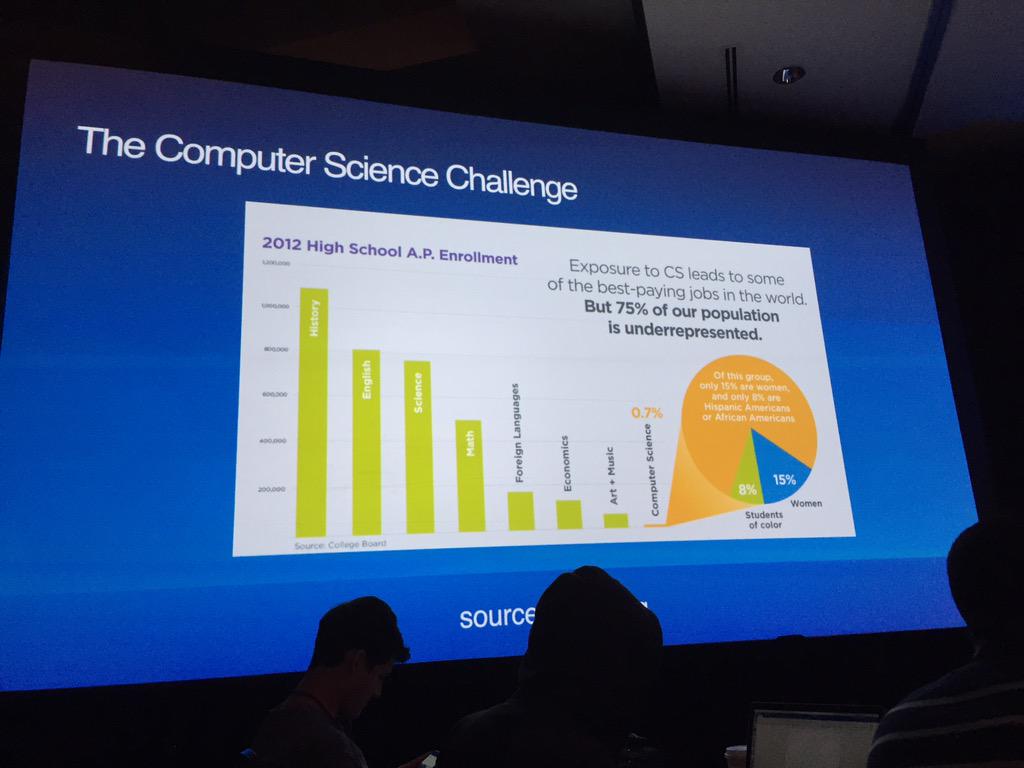 |
| A challenge for us all |
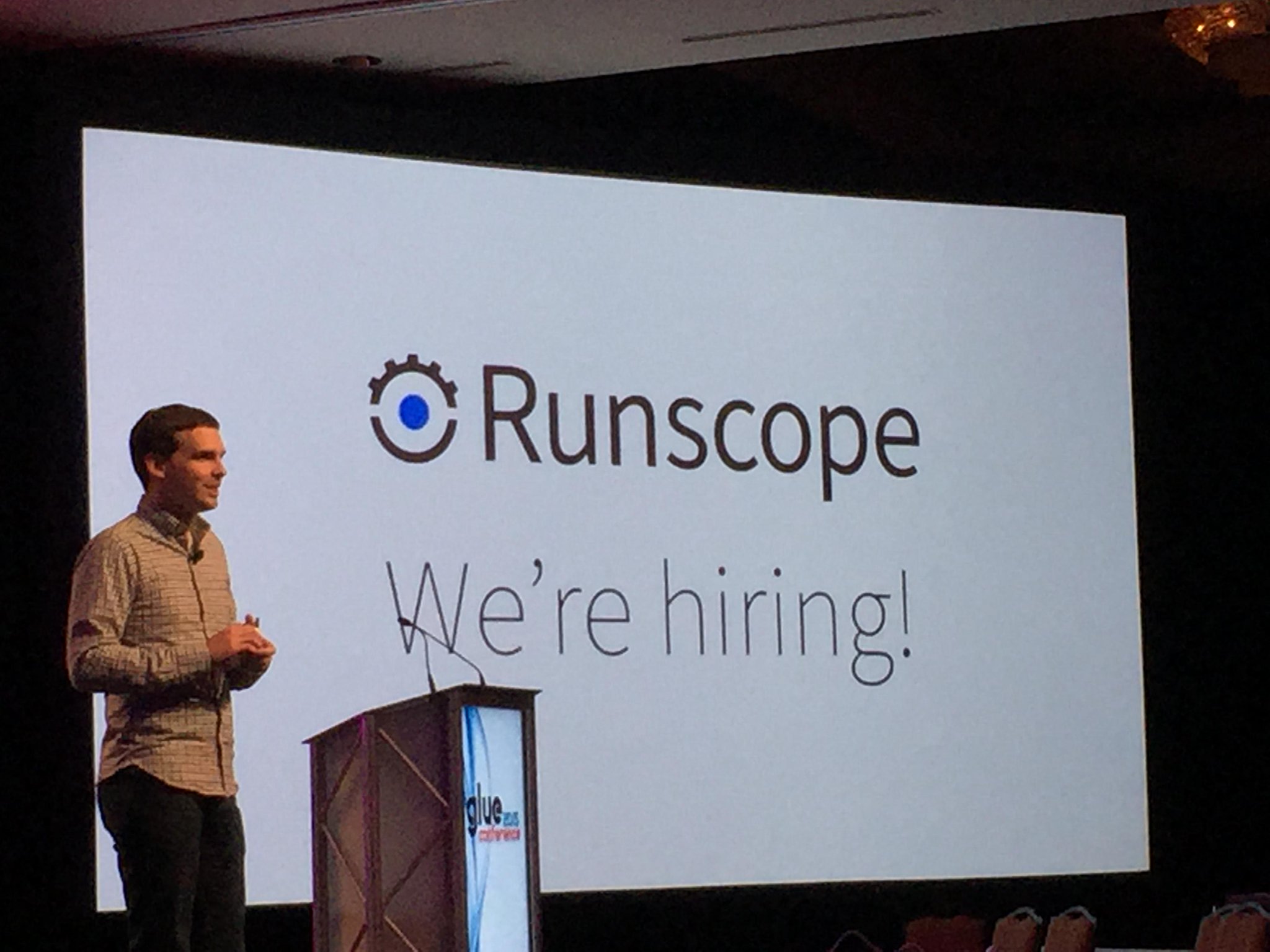 |
| Is this clear? |
Almost every session I attended had a subtle undertone of "we need talent." Most messages were not subtle.
Talking about microservices, Adrian Cockroft made a great cultural point. When operating microservices, organizations need to fully embrace the DevOps model with a clear escalation chain.
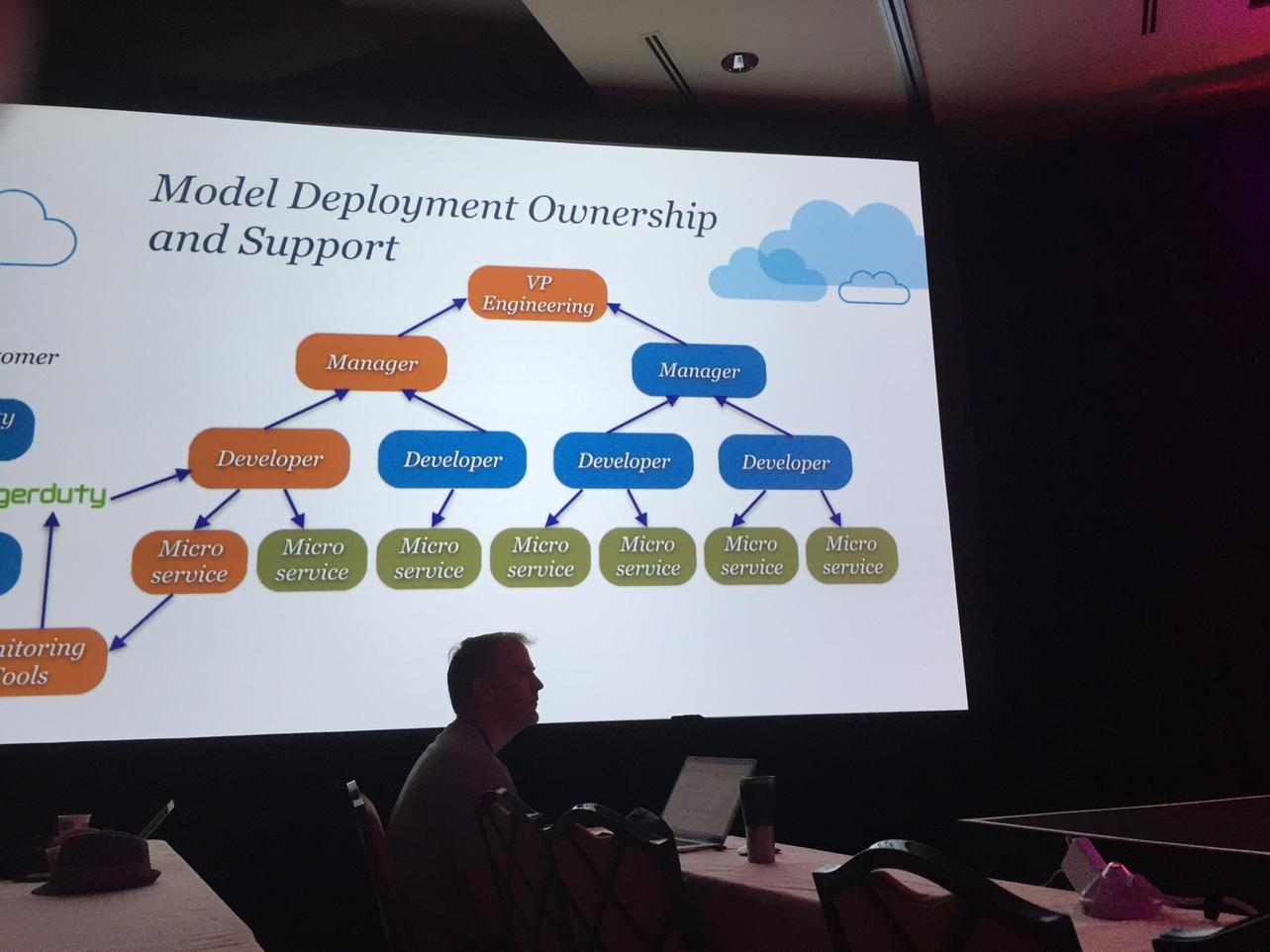 |
| Culture Win: the VP of Engineering volunteers to be on call while expecting never to get called. |
Tools? What tools?
Building on the importance of people, let's talk about tools. Specifically, let's talk orchestration tools - Ansible, Puppet, and Chef. I happen to think agentless Ansible is the way to go, but ultimately, it's what you and your organization are capable of doing with the tools, not the tools you pick. Brian Coca illustrated many possible ways in which Ansible can be used...because he deeply understands how to use Ansible!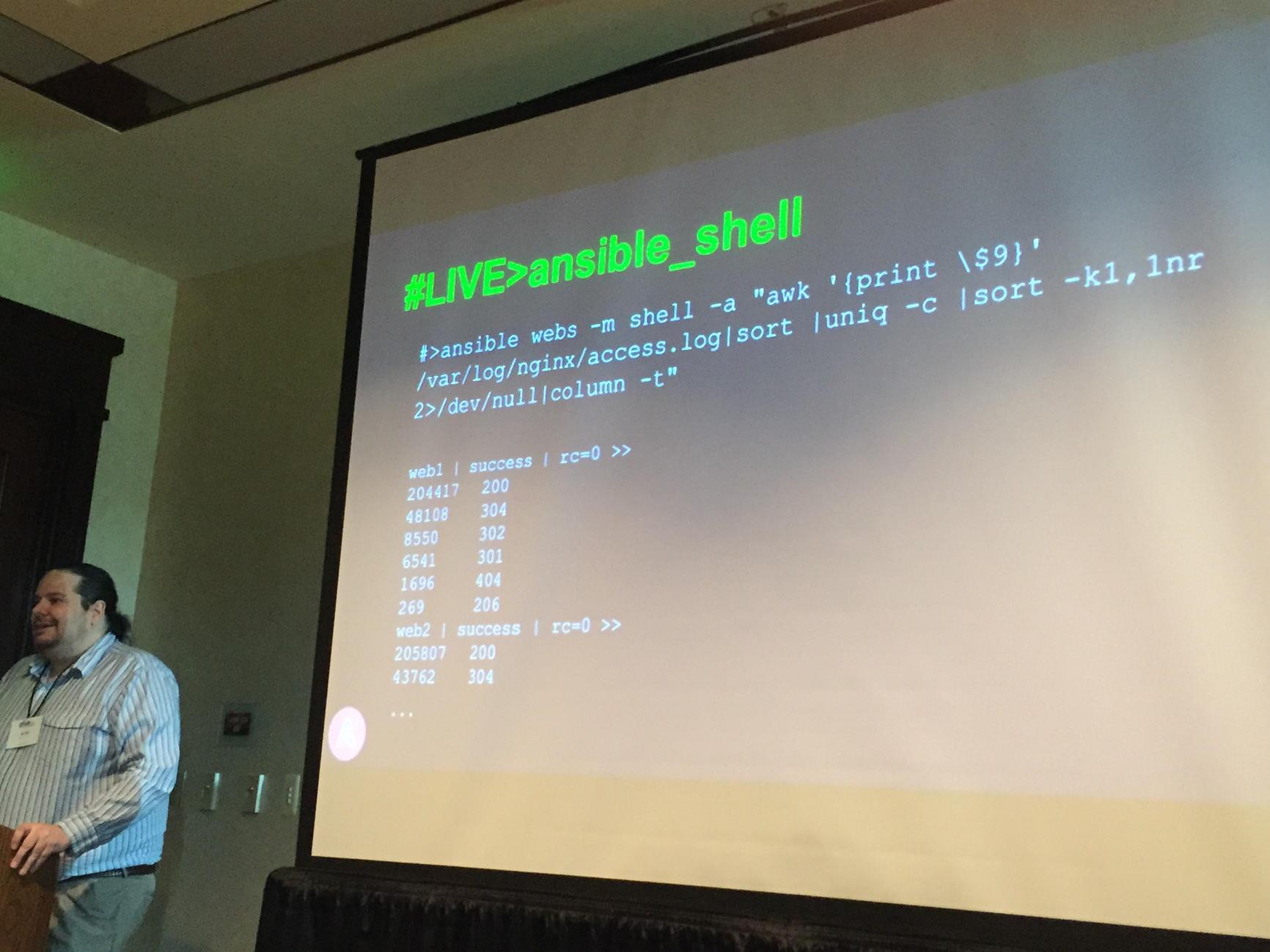 |
| You can do this with Ansible...should you? |
Right on - pick a tool that can be successfully adopted by you/your organization, and stick with it. Stay focused, and don't get distracted.
APIs still rule...and enterprise software still lags behind
APIs have been a thing for years now. I remember writing the customer profile master data store for a major airline in the late 90s. As a master data source, many internal systems wanted to access/update said data. Instead of giving each system direct access to our database, we surrounded it with a cloud of services. At the time, these were written in C, using Tuxedo.What has changed in the last 20 years? The utter ubiquity of APIs in the form of web services. The concept is the same - encapsulate business logic, publish a defined interface, and let the data flow quickly and easily. And yes, it is much, much easier to get going with a RESTful API than a Tuxedo service.
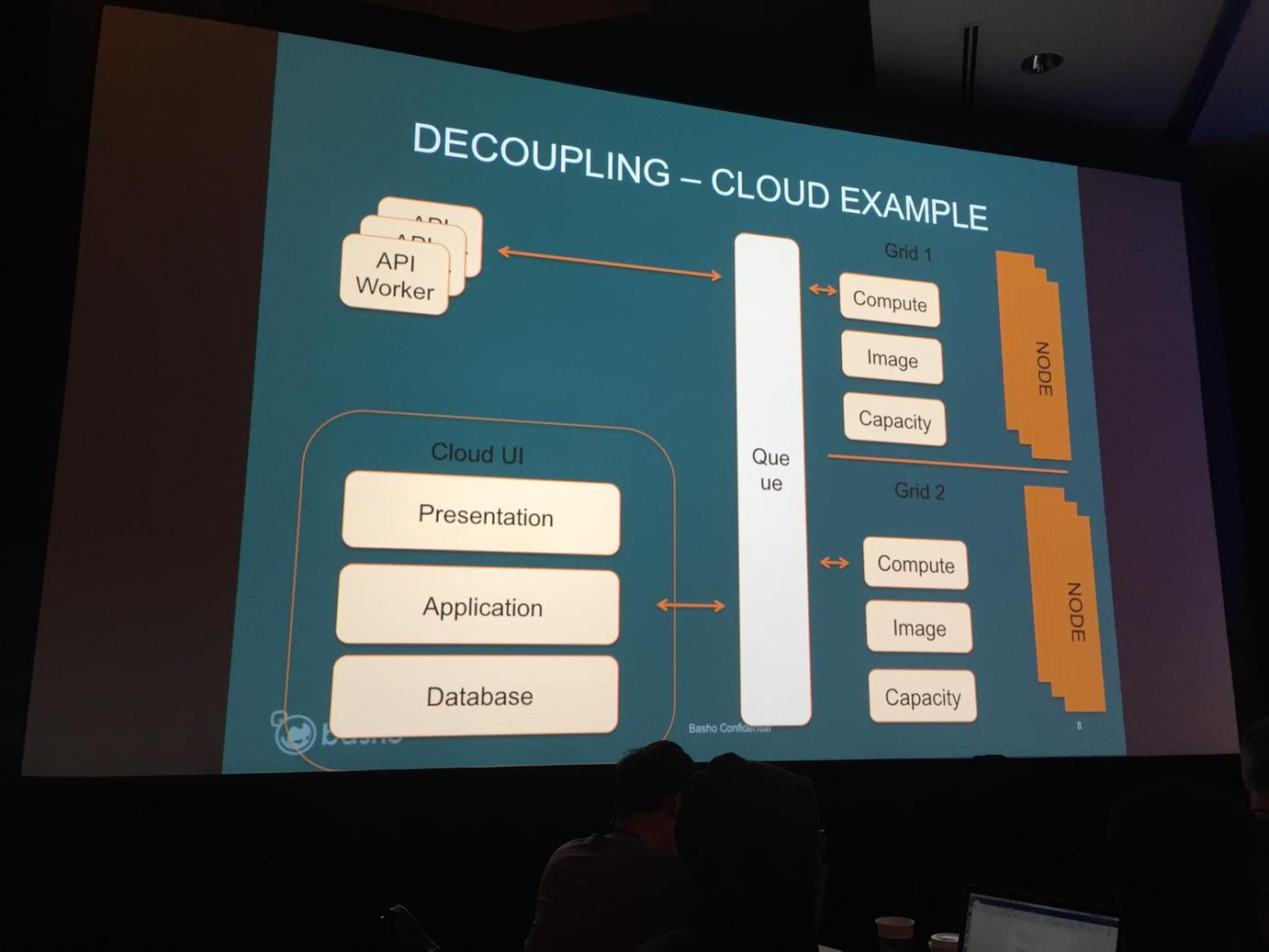 |
| Table stakes for software vendors |
What a Wonderful World
In his presentation, Runscope CEO and co-founder John Sheehan put this slide up.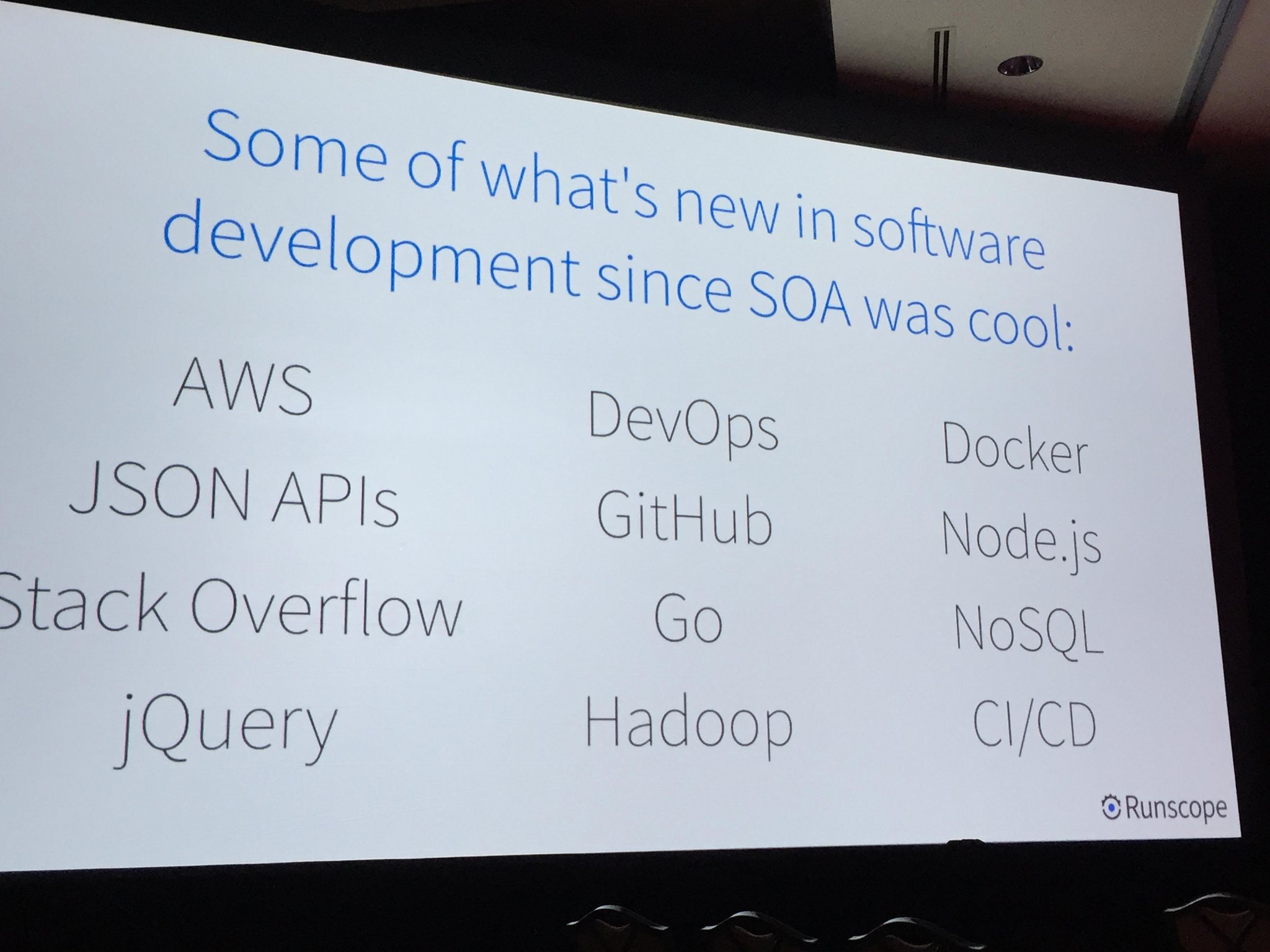 |
| Can you imagine life without these tools? |
Talk with Adrian
If you get the chance, spend some time talking with Adrian Cockroft. I was fortunate enough to spend 20 or 30 minutes talking with him over lunch. First off, he is a genuinely friendly and kind person. Second, he likes interesting cars (Tesla Roadster, Lotus Elise, among others). Finally, he's flat brilliant with loads of experience.
I was able to glean useful tidbits about containers, tertiary data storage, and autocrossing.
| Talking cars and tech with the incomparable Adrian Cockroft |
Serious about automation? Take away SSH access.
One of my favorite tidbits was to remove SSH access from servers. If no individual has SSH access, it forces them to automate everything. At that point, servers truly become disposable.Get beyond the tech
I was pretty fried by the afternoon of day two of the conference. I took the opportunity to skip a couple of sessions and spend some time with Kin Lane. His dedication to understanding and explaining APIs earned him a Presidential Innovation Fellowship in 2013.Yes, we talked tech...and proceeded to go beyond. Kin likes motorcycles. He was a former VW mechanic. He's gone through a material purge and enjoys the mobility his work affords him. Yes, he strives to be all things API, but that's only one facet to his very interesting personality.
| Opting to hang with Kin Lane instead of attending a session |
Repeat attendance?
So, would I go to Gluecon again? Most definitely. It was a worthy spend of time, providing insight into the leading edge of technology in the context of microservices, devops, containers, and APIs. Not too long, and not too big.I came away from the conference with a better understanding of trends in technology. With that knowledge, I am better prepared to work with, ask questions of, and assess potential vendors.
No comments:
Post a Comment